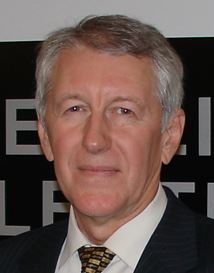Séminaire présenté par le Professeur Yuriy Shmaliy, PhD, DSc, IEEE Fellow
Department of Electronics Engineering, Universidad de Guanajuato,
DICIS, Salamanca, 36885, Mexico
Titre: Continuous-Time Pairwise Markov Model and Some Fundamental Properties
Où: En salle G08, à Télécom SudParis
Quand: Jeudi 29 aout 2019 à 10h00
Abstract: The continuous-time representation of real physical processes in the pairwise Markov model (PMM) form is more general than that based on standard state-space modeling. In PMM, all noise processes are assumed to be Gauss-Markov with white Gaussian driving sources. Because white noise does not exist in nature, such a representation allows learning more deeply undergoing processes. State estimation via the PMM allows getting estimates not only of the system state as via the standard state-space model, but also of the process and measurement Markov-Gauss noise state and the observation. We consider a linear time-invariant (LTI) system with Gauss-Markov correlated noise and show that the continuous-time PMM has more general fundamental properties than the standard state-space model. It guarantees the total stability, which restricts the system stability with norms of the Markov noise matrices. It provides the global controllability under the conditions that the system state controllability matrix has full rank and the Markov noise matrices are not equal. It also guarantees the global state observability under the same conditions. Other properties of the PMM such as the stabilizability and output controllability are also discussed.

Brief Biography of the Speaker:
Dr. Yuriy S. Shmaliy has been a full professor in Electrical Engineering of the Universidad de Guanajuato, Mexico, since 1999. He is presently a visiting researcher in TELECOM SudParis. He received the B.S., M.S., and Ph.D. degrees in 1974, 1976 and 1982, respectively, from the Kharkiv Aviation Institute, Ukraine. In 1992 he received the Dr.Sc. (technical) degree from the USSR Government. In March 1985, he joined the Kharkiv Military University. He serves as full professor beginning in 1986 and has a Certificate of Full Professor, since 1993. In 1993, he founded and, by 2001, had been a director of the Scientific Center “Sichron” (Kharkiv, Ukraine) working in the field of precise time and frequency. His books Continuous-Time Signals (2006) and Continuous-Time Systems (2007) were published by Springer. His book GPS-based Optimal FIR Filtering of Clock Models (2009) was published by Nova Science Publ., New York. He also edited a book Probability: Interpretation, Theory and Applications (Nova Science Publ., New York, 2012) and contributed to several books with invited chapters. His discrete orthogonal polynomials are called Shmaliy polynomials and his unbiased finite impulse response (UFIR) filter is recognized as a robust alternative to the Kalman filter. Dr. Shmaliy has authored more than 450 Journal and Conference papers and holds 81 patents. He is IEEE Fellow; was rewarded a title, Honorary Radio Engineer of the USSR, in 1991; was listed in Outstanding People of the 20th Century, Cambridge, England in 1999; and was granted with the Royal Academy of Engineering Newton Collaboration Program Award in 2015. He had been a visiting researcher with City University London in 2015-2016 and with TELECOM SudParis in 2015 and 2017-2019. He currently serves on the Editorial Boards of several International Journals and is a member of the Program Committees of various Int. Symposia. His current interests include statistical signal processing, optimal estimation, and stochastic system theory.

